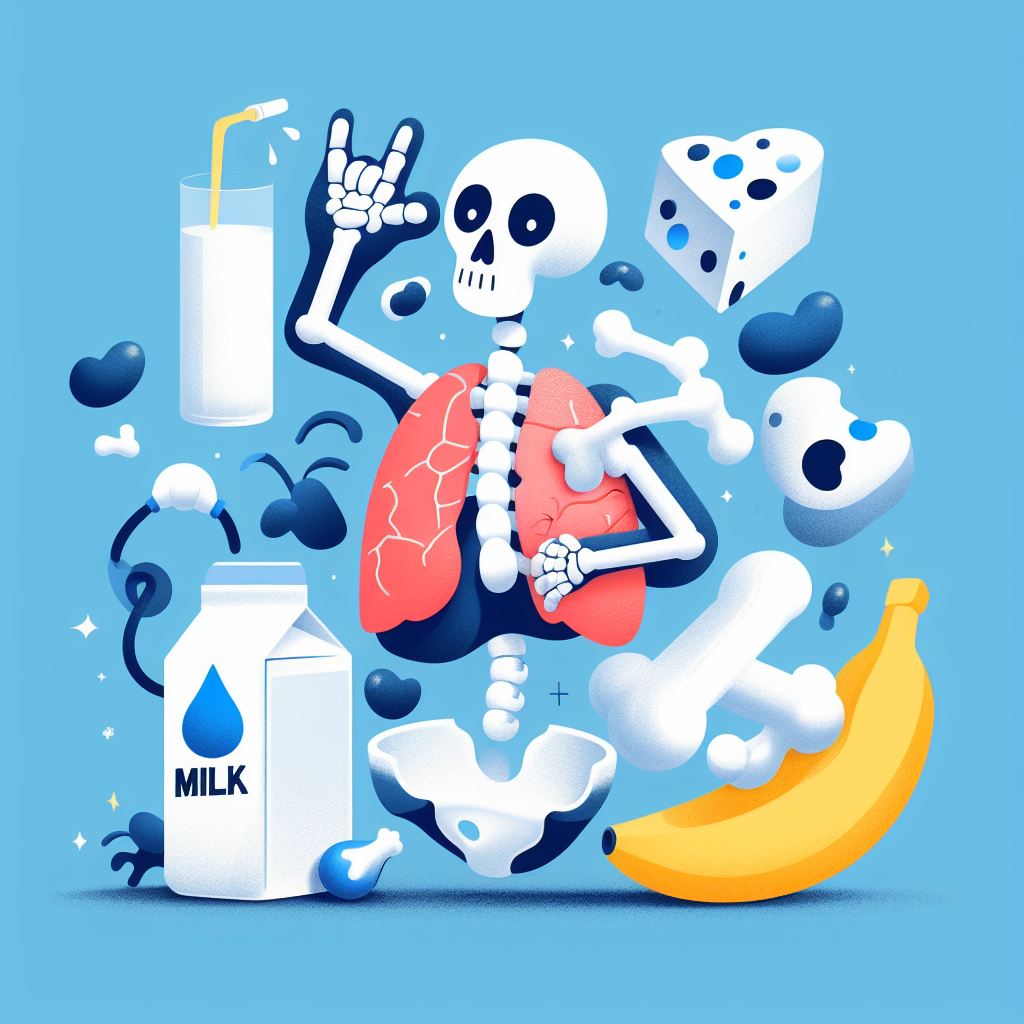Dairy products are important sources of calcium, a mineral essential for healthy bones and teeth. Many different types of dairy products can be consumed to increase your calcium intake.
In this article, we will explore different types of dairproducts that contain calcium, their calcium content per 100 grams, their nutritional value, and their benefits for the body.
1. Milk:
Milk is one of the best sources we can consume. Per 100 grams of milk, the calcium content can vary but is generally around 120 mg. Milk is also rich in vitamin D, which helps the body absorb calcium. In addition to strengthening bones and teeth, regular milk consumption may play a role in preventing osteoporosis, a disease that weakens bones.
2. Cheese:
Cheese also contains a significant amount. Calcium content varies depending on the type of cheese, but on average 100 grams of cheese can contain between 600 and 1200 mg of calcium. In addition to calcium, cheese is often rich in protein and vitamin B12, making it a great choice for strengthening bones while maintaining a balanced nutritional intake.
3. Yogurt:
Yogurt is a dairy product rich in calcium. In 100 grams of yogurt, the calcium content can reach about 120 mg. Yogurt is also a great source of probiotics, which help promote healthy digestion and strengthen the immune system. In addition to benefits for bones, yogurt is also very good for intestinal health.
4. Kefir:
Kefir is a drink made from fermented milk that is not only rich in calcium (about 120 mg per 100 grams) but also contains many probiotics. Consuming kefir regularly can help improve digestive health, strengthen the immune system, and contribute to better absorption in the body.
5. Butter:
Although butter is mainly composed of fatty but it also contains a small amount. 100 grams of butter can contain about 20 mg, however, butter should be consumed in moderation due to its high saturated fat content.
In addition to the dairy products mentioned above, other delicious and nutritious products also contain calcium but are also derived from milk:
6. Almond milk:
Almond milk is a vegan product substitute for cow’s milk. Although it is not directly a dairy product, it is often enriched with calcium. On average, 100 ml of almond milk can contain about 120 mg. Additionally, almond milk is low in calories and fat, making it a healthy choice for people following a specific diet.
7. Soy milk:
Soy milk is a popular alternative to cow’s milk and is also often fortified. In 100 ml of soy milk, content can vary but is generally about 120 mg. Soy milk is also rich in high-quality vegetable protein, fiber, and health-promoting fatty acids.
8. Goat milk:
Goat milk is another option for those who cannot tolerate cow’s milk. In 100 ml of goat milk, the calcium content can reach about 195 mg. Goat milk is also easier to digest. cow’s milk, making it an attractive alternative for some people.
9. Greek Yogurt:
Greek Yogurt is a condensed, creamy milk product with high calcium content. In 100 grams of Greek yogurt, the calcium content can reach about 135 mg. Additionally, Greek yogurt is also an excellent source of protein, making it a nutrient-rich choice.
10. Fresh cheese (Cottage cheese):
Fresh cheese is a fresh, low-calorie dairy product that is also a source. In 100 grams of fresh cheese, the calcium content can vary but is generally about 80 mg. Cheese is also high in protein and low in fat, making it a healthy choice to add to your diet.
These alternative dairy options provide a good source, among other benefits for the body. It’s important to choose those that best suit your diet and personal nutritional needs.
In summary, dairy products are excellent sources, which is essential for healthy bones and teeth. Different options are available, such as milk, cheese, yogurt, kefir, and even butter, which provide different levels. It’s important to include these products in your daily diet to ensure you get enough calcium. This will help you maintain strong bones, prevent osteoporosis, and promote overall good health. Be sure to consult a healthcare professional to determine the amount that meets your specific needs.

